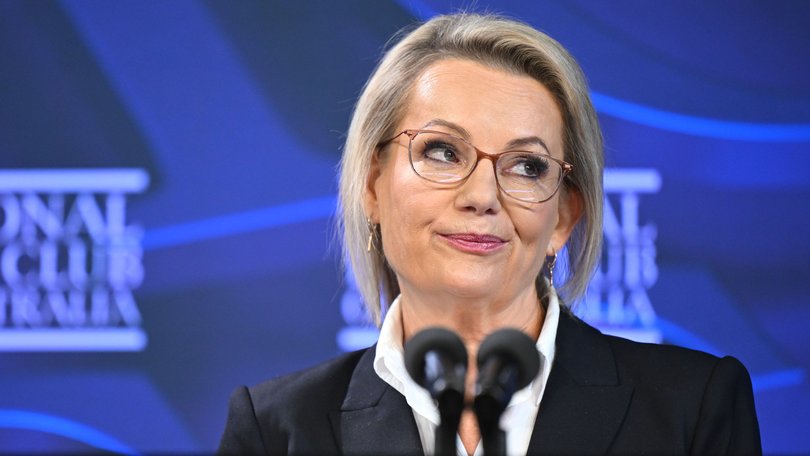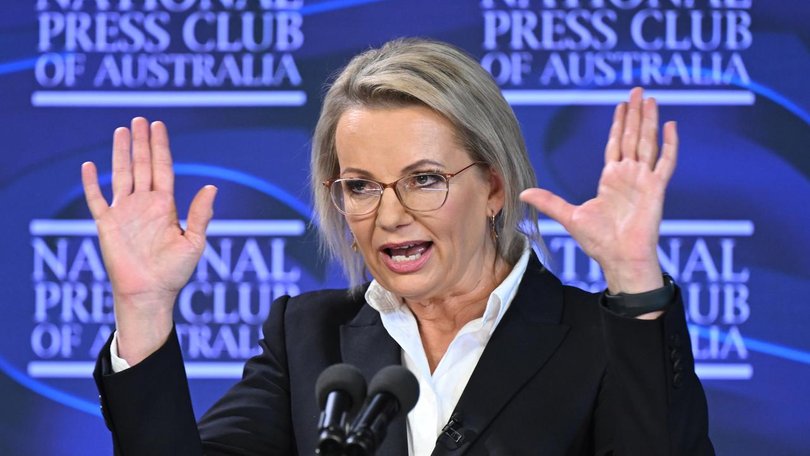NICOLA SMITH: Bold Opposition Leader delivers pledges and hard truths. All that waits now is answers
NICOLA SMITH: Opposition Leader Sussan Ley promised a radical overhaul of the Coalition but stopped short of committing to the steps needed to achieve her goal.

Newly elected Opposition Leader Sussan Ley on Wednesday promised a radical overhaul for a Coalition that took a drubbing in May’s Federal election, but she stopped short of committing to the bold steps needed to achieve her goal.
Her ability to transform discerning messages into meaningful action will determine her own and her party’s success or failure at the next national poll.
Ms Ley’s keynote address and subsequent grilling at Canberra’s National Press Club – an exercise in transparency, and a political risk, that her predecessor Peter Dutton repeatedly shied from – represented a shift from the past and a markedly less confrontational and more inclusive tone.
Sign up to The Nightly's newsletters.
Get the first look at the digital newspaper, curated daily stories and breaking headlines delivered to your inbox.
By continuing you agree to our Terms and Privacy Policy.Opening with an acknowledgement of the Traditional Owners of the land, and a nod to the role of the media in a “robust democracy”, Ms Ley presented a passionate case for the transformation needed to better respect, reflect and represent a modern Australia.
“We didn’t just lose, we got smashed,” she said in upfront acceptance of the Coalition’s loss of 41 parliamentary seats, and she pledged a “frank and fearless” review of what went wrong and how to fix it.
“Never has a review been so important for the Federal Liberal Party,” she said, stressing the need for a “strong and effective alternative to vote for at the next election.”
Ms Ley said the election review, to be led by former NSW State minister Pru Goward and former Federal finance minister Nick Minchin, will assess the party’s performance in urban and regional areas across the country and among all voters groups, from multicultural communities to women and youth.
It will be followed by a wider review, spearheaded by James McGrath, to take a deeper dive into more existential issues and how to better serve and grow the party’s membership.

Ms Ley did not retreat from confronting one of the party’s biggest shortcomings – its inability to win over female voters and promote women through its ranks.
“The party Menzies founded was not only for women, it was built by them. It was women’s groups, women’s voices, and women’s energy that helped shape the Liberal Party,” she said.
“We must be a Liberal Party that is proudly for women and made up of women. Our party must preselect more women in winnable seats so that we see more Liberal women in Federal Parliament,” she added.
Ms Ley insisted it was unacceptable not to have enough women, that a party representing modern Australia must reflect a diverse population “from every corner of the world,” families, young professionals, business owners and older Australians “with wisdom to offer.”
But her ambitious rhetoric was tempered by caution over the means by which to get there.
Ms Ley declared herself “agnostic” on specific methods to make it happen, while a “zealot” to ensure it does.
Stating she was open to any approach, Ms Ley recognised the party’s federated model, which allows each state division to determine its own preselection rules and remained on the fence over deploying quotas to boost underrepresented groups.
“If some state divisions chose to implement quotas, that is fine. If others don’t, that is fine,” she said.
Taking such an equivocal path risks undermining her objective of fundamental reform.
With the election review due by the end of this year, Ms Ley has bought herself time to consider next steps.
Some of that period could be well spent in studying former British Prime Minister David Cameron’s decisive approach to a similar existential crisis within the Conservative Party in 2005.
In charge of a party deemed “unattractive” to voters and barely reflecting the modern Britain, Mr Cameron eschewed all-women short lists and ethnic minority quotas but pushed ahead with a transformation of candidate selection, risking his own popularity with party grandees and activists.
The resulting “A-list” introduced gender parity for female candidates and prioritised aspiring politicians from minority backgrounds on a core list of approved parliamentary candidates to be considered by local branches conducting preselections.
While the idea encountered resistance, it ultimately led to a more diverse party that produced female prime ministers Theresa May and Liz Truss, and the UK’s first Hindu leader, Rishi Sunak.
Ms Ley on Wednesday struck the right tone and ticked the correct boxes, leaving little doubt about the sincerity of her ambition for major reform.
But whether she can and will take the huge political risks to achieve it will be the biggest test of all.

